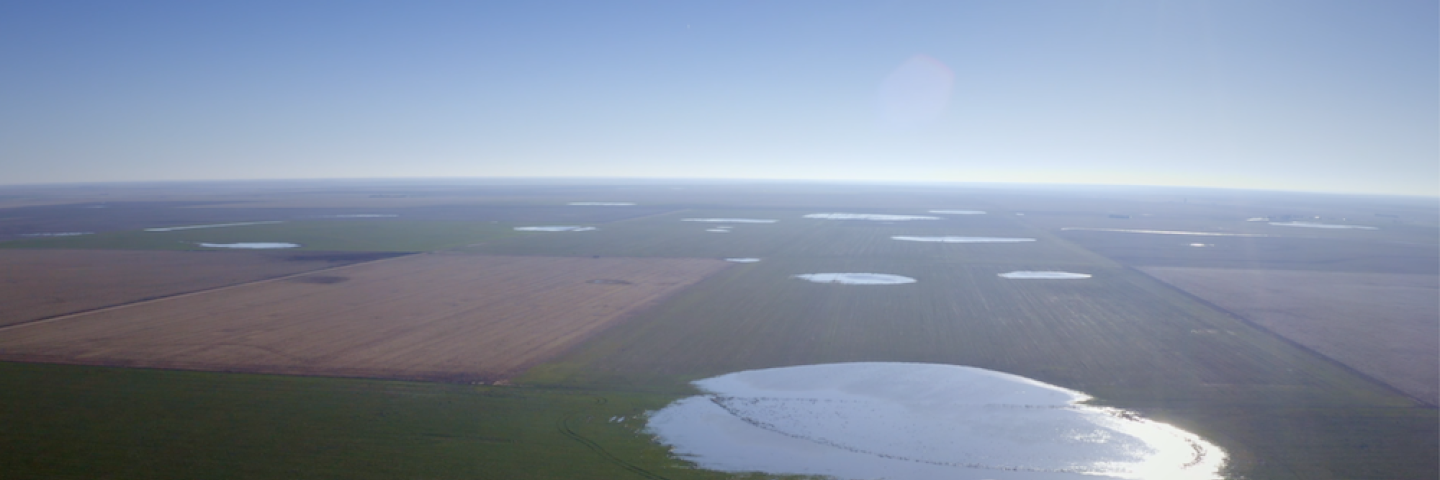USDA-NRCS Announces Additional Financial Assistance Available Under the Groundwater Recharge and Sustainability Project

David S. Doctorian, State Conservationist for Kansas, U.S. Department of Agriculture Natural Resources Conservation Service, has announced that producers in Greeley and Wichita Counties in Kansas are eligible to receive financial assistance under the Groundwater Recharge and Sustainability Project.
SALINA, KANSAS, Friday, May 3, 2024 ‒ David S. Doctorian, State Conservationist for Kansas, U.S. Department of Agriculture (USDA) Natural Resources Conservation Service (NRCS), has announced that producers in Greeley and Wichita Counties in Kansas are eligible to receive financial assistance under the Groundwater Recharge and Sustainability Project (GRASP). Funded by the NRCS Regional Conservation Partnership Program (RCPP), GRASP is a locally led USDA partnership program to address declining aquifer levels by assisting producers with implementing voluntary irrigation conservation and efficiency practices, and by restoring playas to increase groundwater recharge. This fiscal year (FY), the ACT NOW funding process will be utilized for RCPP-GRASP.
“Financial and technical assistance is still available for managing and restoring playa wetlands,” said Doctorian. “And through this program, annual rental payments are made for lands devoted to playa restoration activities.”
Applications for RCPP-GRASP are accepted year-round, and by following the ACT NOW funding process, applications can be preapproved for funding as soon as NRCS staff completes the application ranking and review. This will facilitate a quicker turn-around to enter into a contract for participants.
The final date to apply for this second round of FY 2024 funding will be Monday, July 1, 2024. Applications received prior to the deadline will be planned, assessed, ranked, submitted in the order received, and will be preapproved based on fund availability and if a ranking score above the threshold level has been met. The threshold score for this batching period will be zero points. Applications received after the deadline will be batched and considered in the next batching period.
“The Act Now funding process will allow applicants with high-ranking scores to avoid the long processing time typically associated with conservation programs,” said Doctorian. “This will enable interested and qualified applicants to begin implementing the needed conservation practices sooner and reduce the wait time. In addition, applications that focus on playa conservation and restoration efforts near municipal and domestic water wells will receive ranking priority. Supporting recharge where it is needed most will result in water that can be used by generations.”
GRASP is supported by a diverse group of partners including Greeley and Wichita County Conservation Districts, Kansas Association of Conservation Districts, Kansas Department of Agriculture, Kansas Department of Wildlife and Parks, Kansas Groundwater Management District #1, Kansas Water Office, Ducks Unlimited, Pheasants Forever, Playa Lakes Joint Venture, and Wildlife Conservation Society.
More information about the RCPP-GRASP project can be found on the Kansas RCPP webpage, scroll down to find the specific GRASP information. Applications can be submitted at the Greeley or Wichita County USDA Service Centers.
To learn more about NRCS programs, producers can contact their local USDA Service Center. Producers can also apply for NRCS programs, manage conservation plans and contracts, and view and print conservation maps by logging into their farmers.gov account. If you don’t have an account, sign up today.
USDA touches the lives of all Americans each day in so many positive ways. Under the Biden-Harris administration, USDA is transforming America’s food system with a greater focus on more resilient local and regional food production, fairer markets for all producers, ensuring access to safe, healthy and nutritious food in all communities, building new markets and streams of income for farmers and producers using climate smart food and forestry practices, making historic investments in infrastructure and clean energy capabilities in rural America, and committing to equity across the Department by removing systemic barriers and building a workforce more representative of America. To learn more, visit usda.gov.
#

